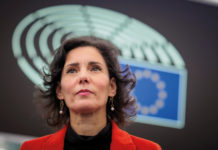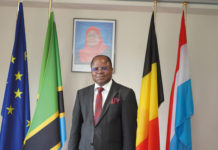Rwanda is located in the centre of Sub-Saharan Africa. It borders the DRC, Uganda, Tanzania and Burundi. Rwanda is about 10% smaller than Belgium in terms of land size and recently overtook Belgium in terms of population size (12 million). The median age in Belgium is 41 years, whereas in Rwanda it’s 20 years. The estimated GDP of Rwanda for 2017 is just below US$ 9bn, whereas Belgium’s GDP is just above 490bn.
Kigali’s rapid development will require more than 350,000 new housing units by 2022. With a population of just over 220,000 in 1990, Kigali’s population has grown five-fold since.
Rwanda is part of the East African Community, a regional intergovernmental organisation of 6 Partner States: the republics of Burundi, Kenya, Rwanda, South Sudan, the United Republic of Tanzania, and the Republic of Uganda. It is headquartered in Arusha, Tanzania. The EAC regulates the free movement of goods, people, labour, services and capital from one Partner State to another as well as the rights of establishment and residence without restrictions. The agreement came into force in 2010, the ultimate goal being a common currency. Eight years on, people and capital move freely, with the rest still to come.
The SME sector makes up over 98 per cent of the total number of businesses in Rwanda, employing 41% of the workforce and playing a significant role in the economy. 2016 saw a push of the “Made in Rwanda” concept, a campaign that focuses on locally made products, improving product quality to push export volumes and receipts. This has created a need for capacity building, brand positioning, packaging and marketing.
To sustain the initiative, an online platform was launched on 1st May 2017: www.madeinrwanda.online. The Made-in-Rwanda Trade Fair Expo is held annually in Kigali.
The country moved up 15 places in the 2018 World Bank Doing Business Report, claiming the 41st spot globally, overtaking Belgium, which is ranked 52nd.
This move up is the result of five reforms, making it easier to do business, especially for small and medium-sized enterprises.
The reforms are:
- Improving the building permit process by increasing quality control and risk-based inspections. The system allows applicants to track the progress of their applications online.
- Facilitating the payment of taxes with an online payment system.
- Improvement in registration of property by entering online information on land, registration of plots across the country and using the Irembo platform for property transfer.
- Improved protection of minority investors.
- The enforcing contracts indicator was also made easier as judgements made at all levels in commercial cases are now made available to the general public though the Judiciary’s website.
What often happens is that 100% of your shares and profits belong to you if you are the sole owner of your company. You do not need to share them with a local partner as is the case in many other African countries. You can take your money out of the country in foreign currency at any time provided that your taxes have been settled. As a Belgian national you can have land on a 49-year lease.
Opportunities are in housing, tourism, the agri-business, training (particularly sectors such as ICT, banking, online services or portals), marketing, or the environmental industry. Just remember the actual size of the economy and dose your investment accordingly. The German multinational Siemens, with its Belgian subsidiary, is currently studying investing in the power segment and infrastructure. There is great demand in Rwanda and the entire region for more power and better distribution networks. Volkswagen has also engaged itself with a semi knocked-down assembly plant in the country and the first Made-in-Rwanda car is expected for May of this year.
The Belgian Trade Commission (AWEX-BIE-FIT) is based in Nairobi and covers the five countries of the East African Community. The highlight for 2018 will be in several segments.
- A mission in banking technologies is currently being prepared in Rwanda and Kenya. The Trade Commission is considering opening it up to other sectors (end of May 2018 – TBC)
- 20 students from VUB have just started 20 market research projects for 20 Belgian companies (February 2018)
- A focus on Ethiopia will be engaged as soon as the political situation stabilises. Ethiopia is a promising economy. The recent stepping down of the Prime Minister (15 February 2015) is delaying our action until the institutions resume normal operations.
- September 2018 will bring the IAME conference on ports economics to Mombasa with the Belgian Professor Michael Dooms as a key player in the organisation.
- October 2018 will see the spotlight turned on the medical sector with an info booth at Medic East Africa
- October 2018 – A multi-sector mission to Tanzania. The mission could also bring us to Rwanda if the May mission focuses exclusively on the banking sector.
- November 2018: focus on the construction segment in Kenya with a booth at the Big 5 Trade fair and close collaboration with the National Construction Authority of Kenya (NCA)
Every month, the Trade Commission sends out a short newsletter with information and projects under development in East Africa. The newsletter is available free of charge on simple request at Nairobi@belemb.eu
Contact: Ivan Korsak – Trade Commissioner – Embassy of Belgium in Nairobi – + 254 20 405 20 90 Nairobi@belemb.eu
![[:fr]REVISITED RWANDA[:]](https://perspectives-cblacp.eu/wp-content/uploads/2018/04/REVISITED-RWANDA-696x522.jpg)


